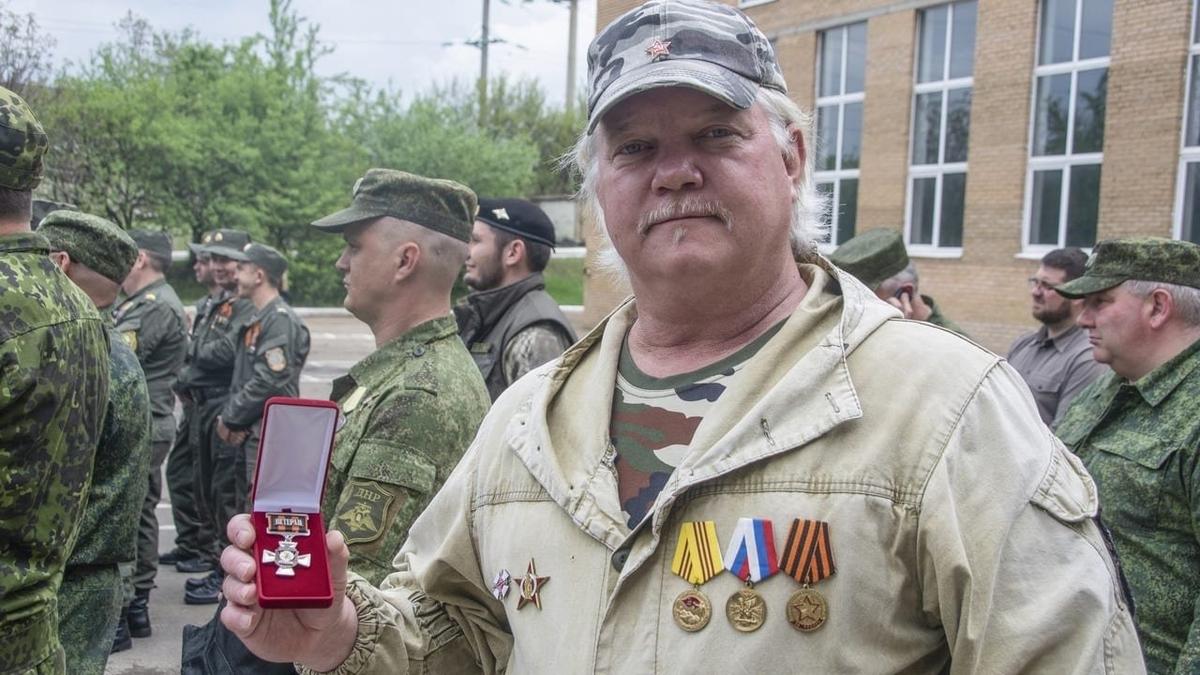
Russell Bentley. Photo: VK
A US citizen who fought for pro-Russian militias in Ukraine between 2014 and 2017 has died in the eastern Ukrainian city of Donetsk after his wife claimed he had been kidnapped by Russian soldiers, local pro-Kremlin sources reported on Friday evening.
Russell Bentley, 64, was reported dead by his wife Lyudmila on Friday, the pro-Russian Donetsk News Agency said. Neither it nor Kremlin propagandist Margarita Simonyan, who also reported the death of “real American” Bentley, gave any indication as to his cause of death.
Russell Bentley was a self-declared communist known as “Texas” who left his native Austin to join pro-Russian separatist forces in eastern Ukraine in 2014 and, in his own words, “kill the neo-Nazis who were murdering innocent and unarmed Donbass civilians”. He obtained Russian citizenship in 2021 before becoming a “full-time war correspondent” for Russian state news agency Sputnik in 2023.
Lyudmila Bentley had earlier in April told state news outlet RT that her husband had disappeared in Russian-occupied Donetsk on 8 April after going to help victims of a Ukrainian shelling attack on the city, with Russian-installed local authorities subsequently reporting him missing.
On 15 April, she appealed to the Russian government to “do everything possible to save” her husband, who she said had been “brutally detained” by soldiers from the Russian army’s 5th Guards Tank Brigade. Alexander Korobko, a pro-war journalist who claimed to have made a film about Bentley for a media outlet named Russian Time, suggested that the soldiers who allegedly detained Bentley had mistaken him for a spy.
Alexander Khodakovsky, the commander of the pro-Kremlin Vostok battalion for which Bentley had previously fought in eastern Ukraine, called for the “exemplary punishment” of those responsible for Bentley’s death, suggesting that Russian soldiers had killed him.
